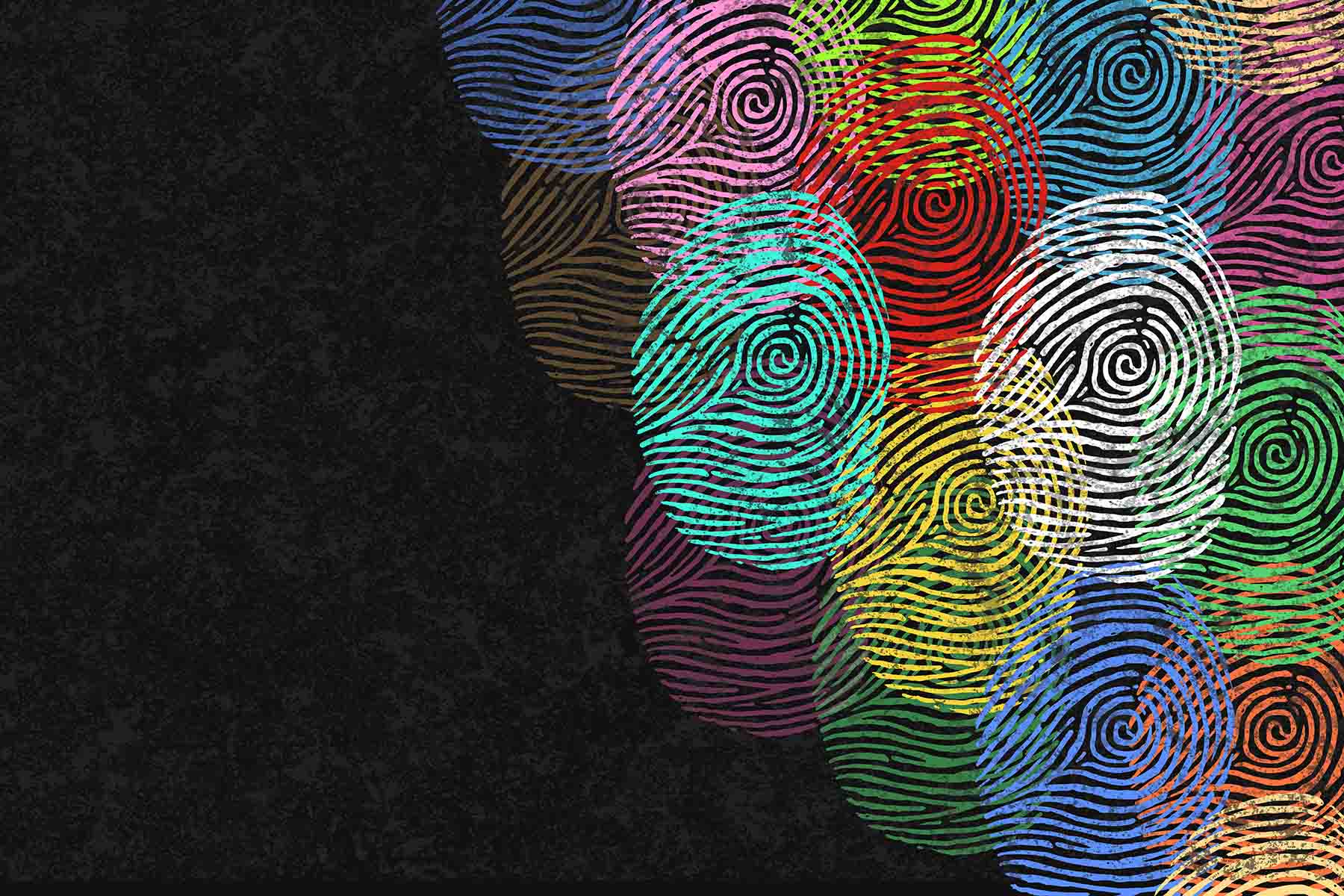Am I a Canadian writer? One is tempted to say it doesn’t matter. Art is art; it needs no label or brand. You write because you must, not to raise a flag or beat a drum. Alone with yourself, you bare your soul, and that’s who you are. To which I answer: But that is simplistic; you need to be read, you need to be seen, or you don’t exist. You are an unseen star in an unseen galaxy, a hypothesis, a possibility.
To elaborate my question, I ask myself: You are a Canadian citizen, a novelist living and recognized in Canada, but are you a Canadian novelist? To which I respond: But what is a Canadian novel?
The answer would have been obvious once—Lucy Maud Montgomery, Margaret Laurence, Robertson Davies would come to mind. Their novels are historically, quintessentially Canadian, produced from the soil where the ground turns white every winter and the leaves turn colour in the fall. In today’s parlance, and with history under revision, these might be called “white Canadian” works, or Canadian settler works. Whatever one calls them, their authenticity as Canadian can hardly be questioned. Similarly so, now, for works by Indigenous Canadians and those African Canadians who have lived on this soil for generations.
To look for an essence, therefore, a core, a singular notion of Canadianness within the maelstrom, is surely to try and grasp at an illusion. One is reminded of the fable of the three blind men who encounter an elephant: each man puts his hand on a part of the animal—an ear, a leg, a tusk—and concludes that it defines the whole. Or think of Zeno’s arrow: no sooner have you put your finger on it than it has moved on.
As the nation, so the novel, you would think. There’s no longer an essence or a trait that defines a Canadian novel. And yet some novels are regarded more Canadian than others, which are welcomed into the pantheon more like foreign guests. It is still possible to be told: When will you write a novel about Canada? Or: This novel is your most Canadian. Or even to be asked, point-blank: Do you consider yourself a Canadian? Painful questions for the author but honestly meant, asked by “real” Canadians. I’ve encountered all three during my tours. Not long ago, a few literary critics, anxious to defend the purity of Canada’s national literature, came out with their calipers to adjudge the Canadianness of foreign-born authors like me who had arrived recently in large numbers and wrote about elsewhere and were receiving attention in the metropolises. And had the temerity to win prizes as Canadian authors.
However, the question I have posed—Am I a Canadian writer?—is not my plea for inclusion. I ask it of myself.
In those dark moments of self-doubt that periodically visit any writer, those of us who bear the weight of an undesired hyphen (or extra description or label) often wonder: Whom do you write for? Who is your audience? And even: Who cares? What do you have to say that is relevant to this nation, to the world raging around you in all its complexity and tumult? You could have become a doctor and saved lives, an engineer and built roads. As it is, you come from the fringes of world affairs and now live in a small country as a so-called minority. Who will read you after your adieu? Will it be in Canada, where you sputter in frustration: I am not a professional multiculturalist, a token, an “of colour” fulfilling a diversity quota, a tick mark on forms demonstrating Canada’s liberalism and goodness? Where you assert: My writing is not immigrant; it emerges out of my being, my experiences, my knowledge? Perhaps, you comfort yourself, there will be a corner of recognition for you in the country you left behind, which occupies an indelible place in your heart. But are you any more relevant over there?
Traditionally, an immigrant was someone who departed the shores of his native country, set foot on the new soil, and kissed the earth; the old life was behind him, to be forgotten. Succeeding generations adapted, spoke the language and idiom, played baseball or hockey or football. We know they were not completely integrated, often living in their own neighbourhoods—Irish, Italian, and Greek—and identified by certain characteristics. They bore the brunt of discrimination, but that was par for the course. This is the classic model of immigration, as neat as a theorem and as comforting.
Canadian literature, correspondingly, would be characterized in this picture by something essentially Canadian, revealing the existential nature of this northern nation. You might think of the theme of survival à la Atwood; you might think of nature—the cold, the wilderness, the Prairie, the mountains, the Atlantic. You might think of a certain privileged kind of colonial inheritance that is manifest, for example, in the celebration of Victoria Day and the presence of the Union Jack as an emblem on provincial flags. There is the Prairie-grandmother novel, the growing-up-in-the-Maritimes novel, the World War I novel, the cool-thirty-something or forty-something Vancouverite novel. These are all accepted Canadian themes, to which, presumably, the new Canadians would adapt or add.
It can be argued that any work of fiction or poetry produced in Canada is different in spirit from a similarly themed work written elsewhere. But is that difference significant enough, or is it slight and incidental? How many years of naturalized citizenship does it take to produce that significant difference, a Canadian trademark? If, in the future, some critic were to examine Canadian literature of the past, would they consider Rohinton Mistry, whose work is set almost entirely in Bombay, or Harold Sonny Ladoo, whose work is set in Guyana, as Canadian writers? If they trawled through the works of these novelists, would they bring out nuggets of Canadianness?
A young writer of Chinese descent declared to me once how fed up he was of stories of ghosts and bound feet and Chinatown; he was impatient to tell Canada and the world his own notion of Chinese Canadianness—dominating mothers, conflicts between the sexes, pressure to excel, gender politics.
I think of what whenever I pass through Toronto’s Thorncliffe Park neighbourhood, pulsating with new life, the mosques, the kabab shops, the supermarkets, the girls in hijab, the boys playing cricket, boys and girls emerging from the schools or cashiering in the supermarket? I think enviously about the stories hatching there. They would assert a new Canada. Stories such as those told in previous decades by Mordecai Richler, grandson of Jewish immigrants, memorializing St. Urbain Street, Montreal, and Maxine Hong Kingston writing about California. At such moments, contemplating the literature that will inevitably emerge from the minds of some of these kids, I realize that other world across the ocean that was similarly mine is no longer retrievable. I wonder if I have a home, as I thought I had, as I like to think I have every morning that I wake up.
For me to go on writing, it should not matter how I am viewed. I cannot pick up the pen or laptop, I cannot honestly call myself a writer of fiction, if I consciously strive to demonstrate in my writing my credentials as a Canadian or African, a Muslim, Hindu, or Sikh, or anything in particular. Others can use labels to describe writers such as I am for their own purposes, but I cannot work under the shadow of a label. It would make me want to scream for my freedom.
In my generation, there was often pressure to write a “Canadian” work in order to get accepted. Such a work was more immediate to the “Canadians,” whom it moved and validated, and it got attention. But succumbing to such pressure resulted, I believe, in the disaster of the “multicultural” novel or poem, in which the author strives to show their Canadianness, using clichés and propaganda from immigration brochures and cringe-producing words of gratitude to the nation. One imagines the patronizing smiles and the tearful gratitude that greeted them. Today the “diversity” novel or poetry collection catches attention. But surely, doing your honest best is sufficient tribute and contribution? What needs to be said will get said.
And so, one asks: Isn’t there any way, then, in which I can be truly Canadian? Not out of the kindness or generosity of other Canadians—which, let us admit gratefully, has been there—but essentially Canadian, so that a person in Berlin or Tokyo, for example, or Nanaimo or Cornerbrook, two archetypically Canadian places traditionally, would look at one’s work and say: Yes, of course it is Canadian! If so, we have to define a new, adulterated, and more sophisticated essence of Canada.
One might define and truly recognize a category of writing and a phenomenon called the “Canadian postcolonial.” Those writers like myself whose work could be described by this term emerged mainly from the milieus of the former British and French colonies. We create and tell the stories of those places and their people—many of whom belong in Canada now—that have not been told before or did not have a ready reception in the metropolitan cultural centres of the world. We are essentially exiles, yet our home is Canada, because home is the past and the present, as also the future. We belong to several worlds, and Canada has given us an audience, a hospitality, and sometimes even a warm embrace. We get a category all to ourselves because there are enough of us.
But we might go further and say: Not only are there so many of us from other parts of the world but there are also entire coherent communities that have settled here, possessing a common heritage and history, and we are telling their stories too. They came with their clothes, and sometimes with their spices and pots and pans, and gave the writers among them the responsibility of bringing along and telling their stories. These stories are not for their nostalgia; they are their history, their myths. They validate and heal, and they anchor their lives in this new land. And the stories are for their future generations as well. I have often been stopped and thanked by people, young and old, for telling their stories. (Once, though this was in Nairobi, after my reading at the national museum, a man came over to me, visibly in tears. “Who tells our stories?” he asked. “We are the forgotten people.”) Through their stories, newer Canadians make connections to other Canadians, for they are human stories, after all. And that puts a whole new dimension to the question of who we really are as authors.
If we are telling the stories of Canadians of so many diverse backgrounds, aren’t we then telling the stories of Canada as well? What kind of Canada? A Canada not only of the Mounties and hockey, the North and Newfoundland, the corny beer commercials, into which newcomers vainly try to assimilate—but a Canada that also constantly adjusts and redefines itself. It is a Canada that is as much urban as it is the North. If 80 percent of a nation resides in its cities, then cities deserve to be recognized as emblematic of the nation, defining it as do the Rockies, the Prairies, and the Atlantic.
This idea is, naturally, anathema to many people—those whose Canada was imbibed in childhood and jars with the multiracial, multilingual kaleidoscopic reality churning outside their windows. Neighbourhoods and cities no longer look the same. Has the sense of our national self disappeared, they anxiously wonder. Where has our Canada gone? We are tolerant and law abiding, they say; we will admit that a Canadian is anyone who is a citizen, but there must be a limit.
There are strong emotions involved in the idea of a changing Canada. This is not only the gripe of the folk who hark back to the Canadian Dominion or of the white supremacists who fear for their race. There is also the more sophisticated lament that goes around, that just when the country had woken up from American cultural dominance and begun to assert itself with its sense of itself and its literature, here came people who wrote about alien places and different histories, who polluted good old Canadian English with Swahili and Hindi idioms, making halal a Canadian word.
The idea I am putting forward here, against this mode of thinking, is that the story of Canada must be the story of all its peoples, and that story gets augmented and changes. The self-image of the nation evolves. Canada’s past is embedded in the land itself and the stories of its Indigenous peoples, but it also undeniably includes the stories, and indeed histories, brought by the immigrant settlers from Britain, France, and the rest of Europe, histories and thoughts that go back to the Bible and classical Greece and Rome; to this sense of origins and the past, I claim, must be added what has been brought over from Africa, Asia, and elsewhere.
Canadians with roots in Europe fought in the two world wars, and that involvement and its stories are a part of the nation’s history, but many new Canadians and their forebears have been veterans and heroes of those world wars too, and yet others have struggled heroically in other conflicts, in wars of liberation in Africa, Asia, and South America. Surely, these struggles must now be a part of Canada’s history. Our children, however much they insist in the manner of all youth that the past does not matter, also demand this acknowledgement, that their history and ancestry belong to this land. The stories of the Jewish Holocaust, the holocaust in Rwanda, the Partition of India, the trauma of apartheid, the Atlantic slave trade, and the massacres in Kenya and Cambodia are Canadian stories.
In this kind of convex reality, where the world comes in, gets refracted, and reimagined through Canadian writing, there is perhaps a place for writers such as I, who will always wash upon these shores with stories to tell.
Excerpted from Nowhere, Exactly by M. G. Vassanji. Copyright © 2024 M. G. Vassanji. Published by Doubleday Canada, a division of Penguin Random House Canada Limited. Reproduced by arrangement with the publisher. All rights reserved.






